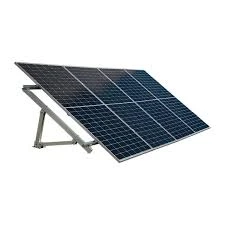A Comprehensive Guide to Understanding the Specifications of Solar Panels for Optimal Selection
Understanding Solar Panel Specs A Comprehensive Guide
As the global push for renewable energy intensifies, solar panels are becoming a popular choice for homeowners and businesses alike. Solar technology harnesses sunlight to generate electricity, providing a clean, sustainable power source. However, with various options available in the market, understanding solar panel specifications is crucial for making an informed decision. This article aims to break down the key specifications you need to consider when selecting solar panels.
1. Solar Panel Types
Before diving into the specs, it's essential to understand the different types of solar panels. The three main types are monocrystalline, polycrystalline, and thin-film panels. Monocrystalline panels are made from a single crystal structure and are known for their high efficiency and space-saving design, making them ideal for residential installations. Polycrystalline panels, composed of multiple crystal structures, are generally less efficient but are often more affordable. Thin-film panels, while lightweight and flexible, typically have lower efficiency rates and are more suitable for specific applications.
The efficiency of a solar panel refers to the percentage of sunlight it can convert into usable electricity. Most solar panels available today have an efficiency rating between 15% and 22%. Higher efficiency panels can produce more energy in a smaller area, making them a good choice for homes with limited roof space. When evaluating efficiency, it is also essential to consider the solar panel's performance under different lighting conditions, especially during cloudy or shaded days.
3. Wattage
Wattage indicates the output capacity of a solar panel, typically expressed in watts (W). Common residential solar panels range from 250W to 400W. Higher wattage panels generate more electricity, which can lead to greater savings on your energy bills. It is crucial to calculate your energy needs and the number of panels required to meet those needs effectively. A professional solar installer can assist with this calculation and recommend the right wattage for your specific situation.
understanding solar panel specs

4. Temperature Coefficient
The temperature coefficient measures how a solar panel's efficiency changes with temperature increases. This specification is crucial, as solar panels can become less efficient in high temperatures. A lower temperature coefficient value indicates better performance in warm conditions. When evaluating panels, look for a temperature coefficient of around -0.4% to -0.5% per degree Celsius for optimal thermal performance.
5. Warranty Period
Warranties are another essential aspect to consider when evaluating solar panels. Most reputable manufacturers offer two types of warranties a performance warranty and a product warranty. The performance warranty typically lasts 25 years and guarantees that the panel will produce a specified percentage of its rated output over time. The product warranty covers defects in materials and workmanship, usually lasting 10-25 years. Strong warranty coverage indicates confidence in the product and ensures peace of mind for the homeowner.
6. Certifications and Standards
Finally, ensure that the solar panels you are considering meet industry standards and certifications, such as those set by the International Electrotechnical Commission (IEC) or Underwriters Laboratories (UL). These certifications indicate that the panels have undergone rigorous testing for performance, safety, and durability.
Conclusion
Understanding solar panel specifications is vital for making an informed decision about your solar energy investment. By considering factors such as type, efficiency, wattage, temperature coefficient, warranty, and certifications, you can select the best panels for your needs. As you navigate the process of going solar, consulting with a knowledgeable installer can further enhance your understanding and help ensure you make the right choice for your renewable energy goals. Embracing solar technology not only benefits you financially but also contributes positively to the environment, paving the way for a sustainable future.
-
Unlocking Energy Freedom with the Off Grid Solar InverterNewsJun.06,2025
-
Unlock More Solar Power with a High-Efficiency Bifacial Solar PanelNewsJun.06,2025
-
Power Your Future with High-Efficiency Monocrystalline Solar PanelsNewsJun.06,2025
-
Next-Gen Solar Power Starts with Micro Solar InvertersNewsJun.06,2025
-
Harnessing Peak Efficiency with the On Grid Solar InverterNewsJun.06,2025
-
Discover Unmatched Efficiency with the Latest String Solar InverterNewsJun.06,2025







